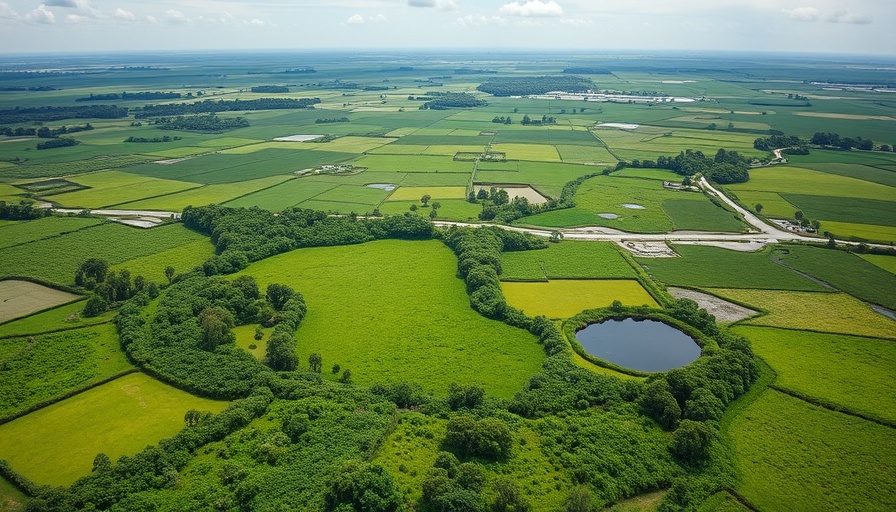
Conservation: A Cost-Effective Climate Solution
The recent findings from the National University of Singapore's study reveal a pressing opportunity: preserving and restoring peatlands and mangroves could slash land-use emissions in Southeast Asia by an astounding 54%. This remarkable statistic underscores the immense potential of these ecosystems to contribute to global sustainability efforts. Southeast Asia is responsible for approximately one-third of global land-use carbon emissions, which means that effective conservation strategies here could result in a 16% reduction in global land-use emissions.
The Biodiversity and Climate Benefits of Peatlands and Mangroves
Packing a “climate mitigation punch,” peatlands, and mangroves occupy roughly 5.4% of Southeast Asia's land area yet account for significant carbon sequestration. They can lock away around 90% of their carbon in the soil, making them one of the world’s most efficient natural carbon sinks. This not only aids in combating climate change but also promotes biodiversity in the region, fostering a healthier ecosystem.
The Consequences of Neglect: Current Threats
Unfortunately, these vital ecosystems face threats from land-use changes such as coastal development, agriculture, and mining. The International Union for Conservation of Nature highlights how activities like peatland drainage and burning lead to carbon emissions rather than sequestering it. It is crucial that conservation focuses on maintaining existing ecosystems, since once carbon is emitted from disturbed areas, it is challenging to recover.
Actionable Steps Forward
To combat these challenges, governments in the region must consider integrating peatland and mangrove conservation into national climate strategies. This includes not only preserving current ecosystems but also restoring damaged ones. Such actions could potentially cut national land-use emissions vastly—by up to 88% in Malaysia alone. As countries set their emissions targets under the Paris Agreement, revolutionizing their approach to wetland management could allow for more ambitious reductions and stimulate the local economy through opportunities like carbon credits.
Final Thoughts: Why This Matters
Preserved peatlands and mangroves represent a unique intersection of ecological health, climate stability, and economic opportunity. For tech-savvy health enthusiasts and sustainable living advocates, understanding the importance of these ecosystems can foster informed decisions around environmental preservation efforts. By prioritizing these natural landscapes, we pave the way for innovative solutions to our planet's pressing climate challenges.
 Add Row
Add Row  Add
Add 




Write A Comment